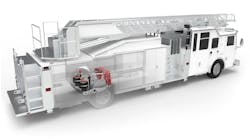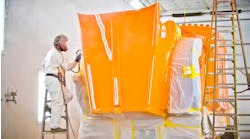When you think of a brand, certain things come to mind, says Steve Crowley, president and CEO of Vipar Heavy Duty, North America’s leading network of independent aftermarket truck parts distributors. Among them: expectation of quality, durability, reliability and specific or vocational performance.
If brand expectations are not an important factor, why would smart business professionals and seasoned travelers stand in lines 10 deep at an airport Starbucks to buy a cup of coffee at twice the market price, he asked during a session on branding that took place during the Heavy Duty Aftermarket Dialogue (HDAD) 2014, held recently in Las Vegas.
Also speaking at the session was Michele Calbi, vice president and general manager of strategic initiatives and truck specialty cranes for Navistar, a leading manufacturer of commercial trucks, buses, defense vehicles and engines. She noted that there is a place in the heavy duty aftermarket for both manufacturer brands and private brands.
Private branding provides unique sales opportunities for a dealer network, allows pricing policies independent of the supplier strategy, drivers business development in an area or opportunity, creates customer loyal programs and helps truck dealers reach the second and third truck owner who do not normally visit a truck dealership, she pointed out.
When it comes to deciding on component brands, there are some chief reasons for going with private label or unknown parts, noted Stu MacKay of specialized management consulting and market research firm MacKay & Company. From his company’s research, he found that the chief reasons, in no particular order, included:
- Older vehicles do not warrant the cost of an OEM part.
- Good for non-critical parts.
- For a vehicle that is to be traded or sold.
- Vocational use of the vehicle.
- Duty cycle or repair cycle of the vehicle.
- Older units have a shorter life-span so less concern on parts quality.
Larger fleets are more likely to evaluate vehicle age and time to resale, vehicle purpose, vehicle value, etc., in the parts brand sourcing decision, said MacKay.
What’s more, the most complex components (internal engine, transmission, major overhauls, etc.) are the most likely to use OEM parts, he added. Air dryers, cartridges, starters and alternators are most likely to be replaced with private brands.
Put on by the Heavy Duty Manufacturers Association (HDMA), HDAD is an outlook conference specifically directed toward the heavy duty aftermarket supplier industry.




